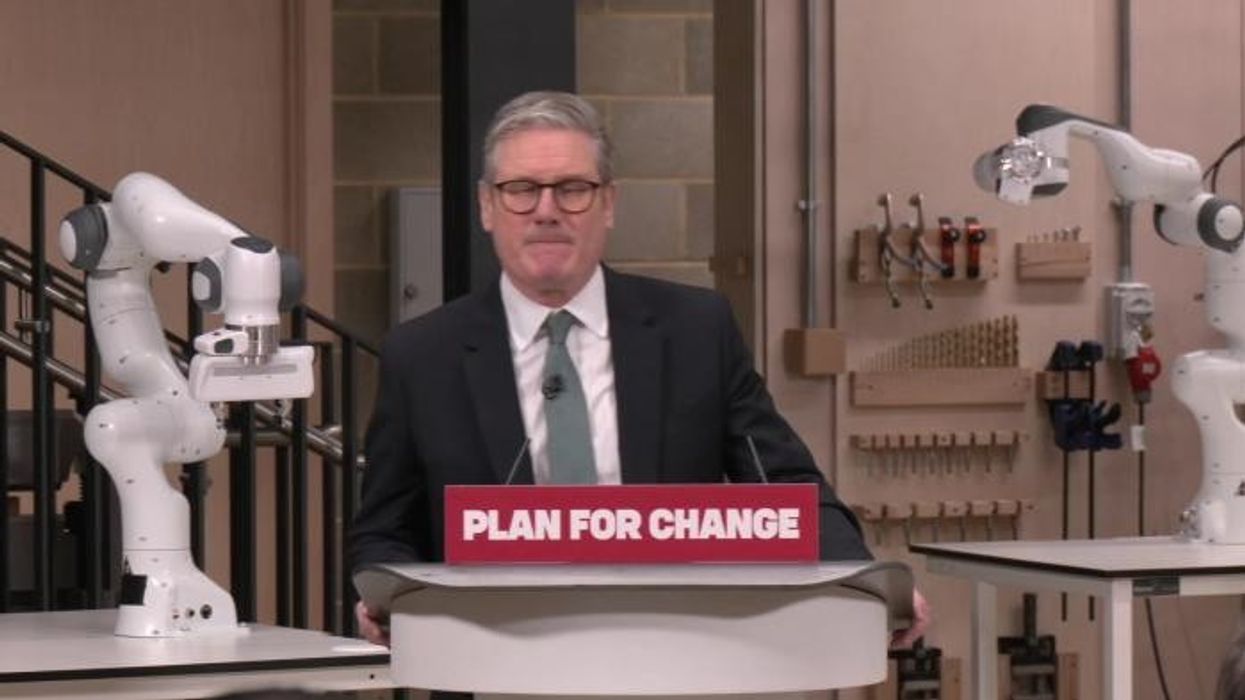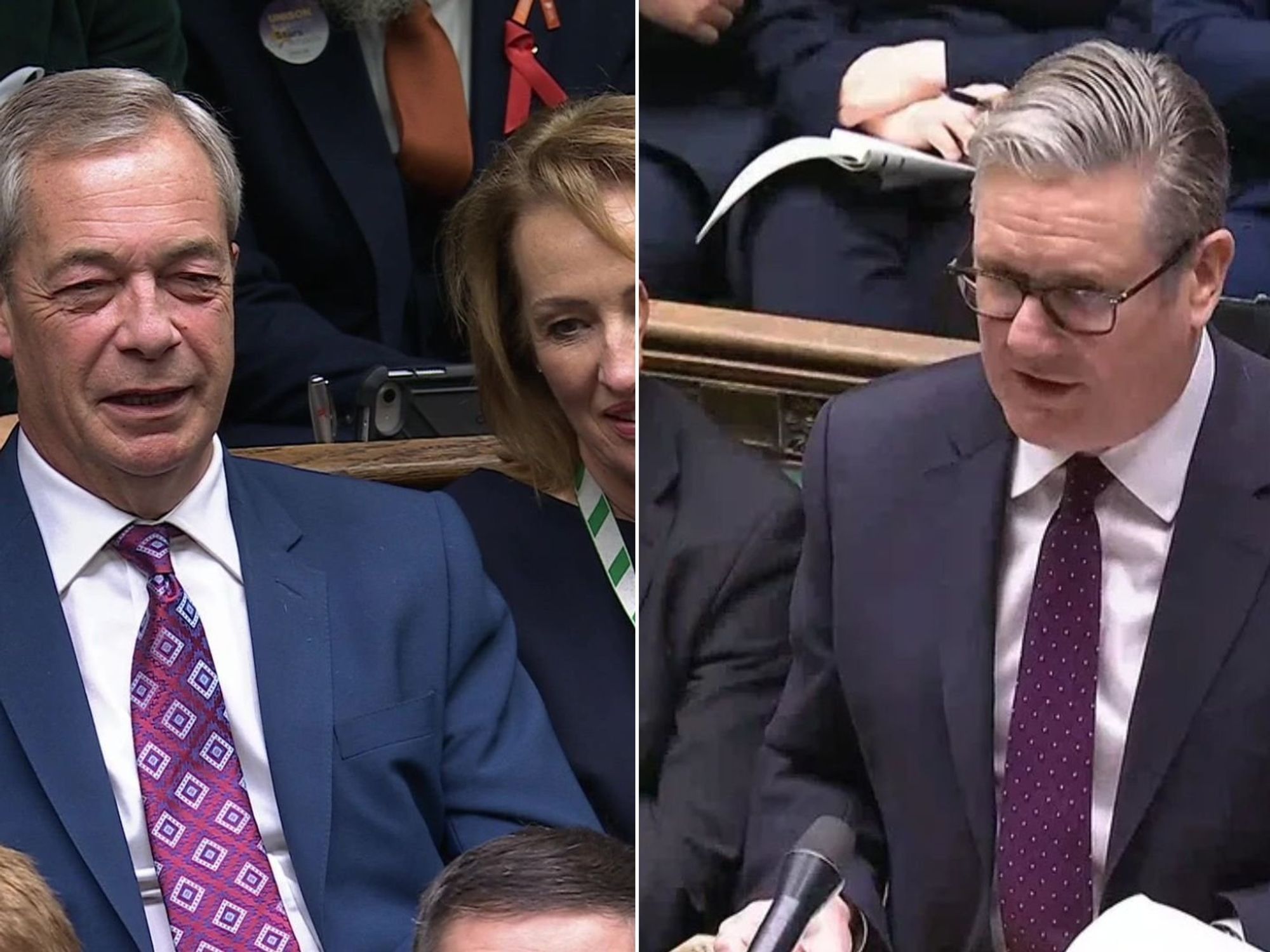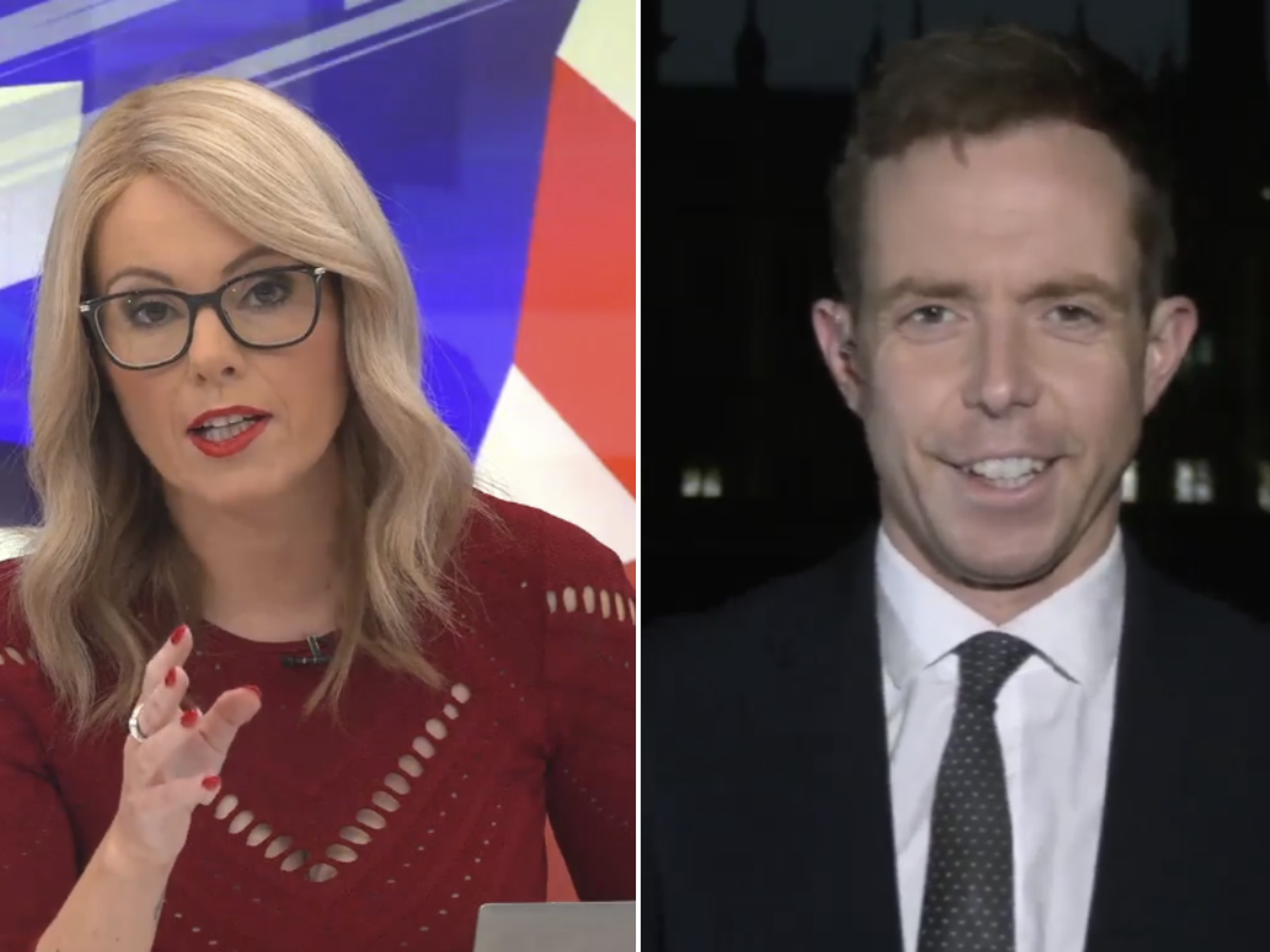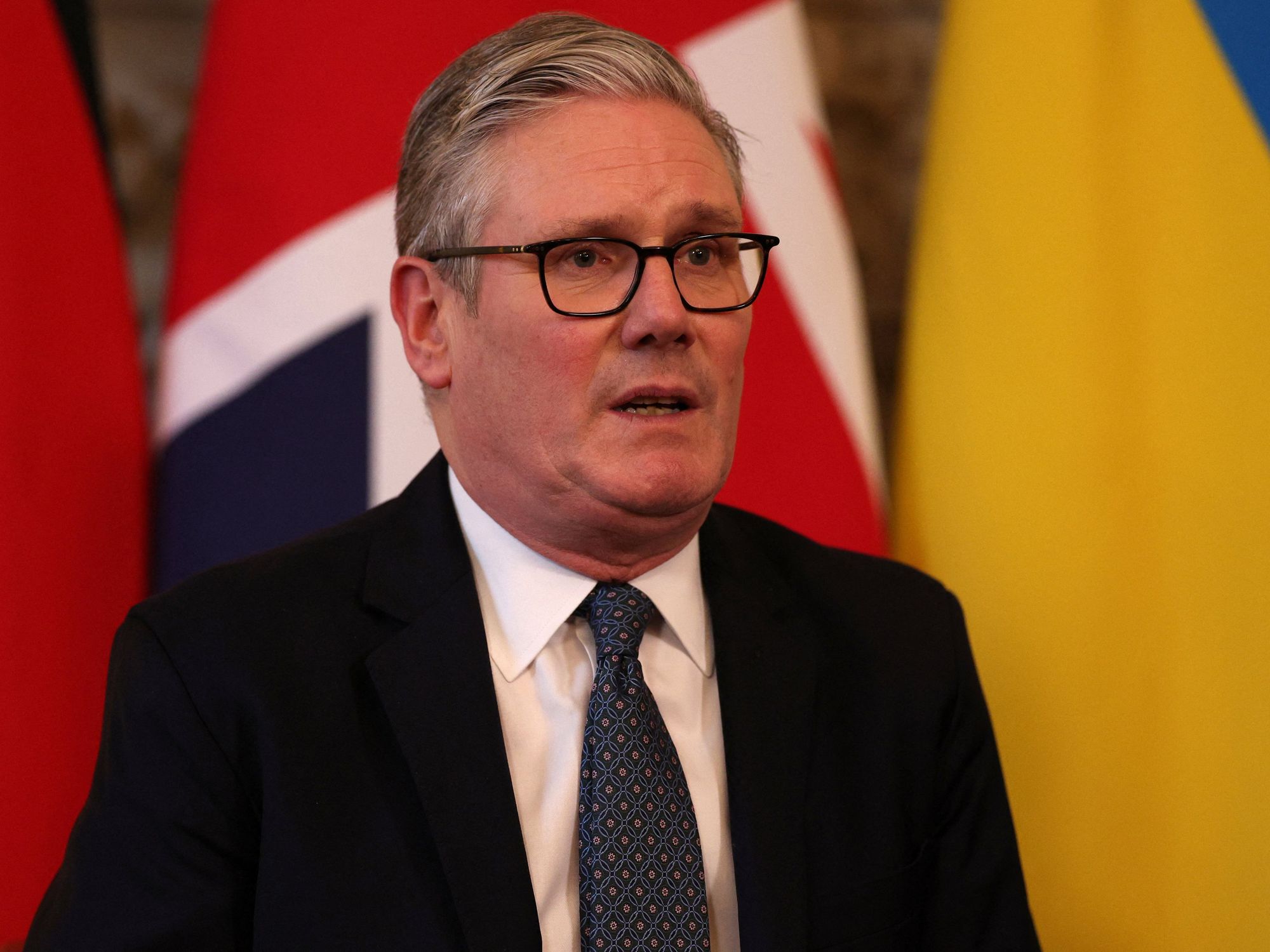Starmer DOUBLES DOWN on benefit crackdown despite 'unfair' DWP consultation: 'I love fights!'

The Prime Minister has promised to reform DWP spending and be 'ruthless with cuts if that's what's necessary'
Don't Miss
Most Read
Prime Minister Sir Keir Starmer has insisted he has "the balls" to slash Britain's benefits bill, declaring "I love fights" when challenged about taking on his own MPs over welfare reforms.
Speaking to The Sun during a visit to Ukraine, the Labour leader vowed to be "ruthless with cuts if that's what's necessary." Earlier this week, the Department for Work and Pensions's (DWP) consultation into reforming disability benefit eligibility criteria was deemed "unlawful" by the High Court, potentially impacting future cuts.
The Prime Minister dismissed critics questioning his resolve to scale back public spending after two weeks of market turbulence. His comments come as economists and banks have expressed doubts about the Labour Government's commitment to reducing expenditure.
Starmer doubled down on his economic stance, emphasising that Labour's "commitment to fiscal rules is ironclad" and ruling out additional borrowing for Government costs.
"It's about not chopping and changing and sticking to the decisions that were made, tough though they were and right though they were," he told The Sun. The Prime Minister also hit back at suggestions of changing economic direction amid mounting criticism of Chancellor Rachel Reeves.
Do you have a money story you’d like to share? Get in touch by emailing money@gbnews.uk.
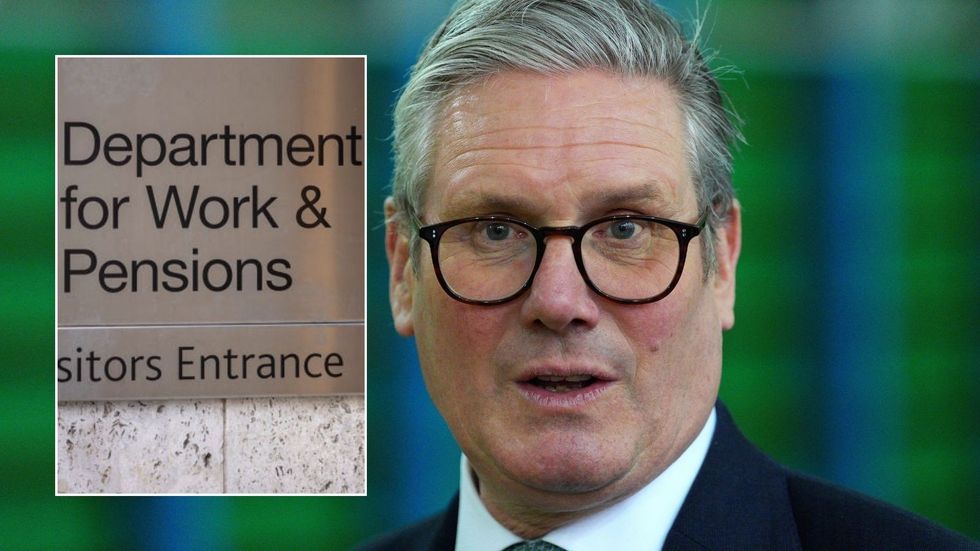
The Prime Minister is promising to slash benefits expenditure
|PA / GETTY
Furthermore, the Prime Minister defended his Government's economic decisions, including £40billion in tax rises and spending increases. "We've taken the difficult decisions in order to stabilise the economy," he said. "We took the decision to fix the £22billion black hole, we took the decision we had to fix the NHS."
He defended his administration's approach, saying: "Nobody pretended, nor should they, that you could fix 14 years of failure in six months." Drawing parallels to his previous battles, Starmer compared the challenge of welfare reform to his fight against the Labour left under Jeremy Corbyn's leadership.
"Five years ago people said he wouldn't be able to do it but I said watch this space. We had to change the party. We had to turn the country around," he said. When asked if he had the "stomach or the balls" to confront his MPs who have long opposed benefits cuts, the Prime Minister was defiant.
"Yes. I love fights. I had to fight to get the leadership of the Labour Party, had to fight to win the election," he declared. Starmer also attempted to ease concerns from JP Morgan that UK policy credibility was "coming under pressure," questioning the evidence for such claims.
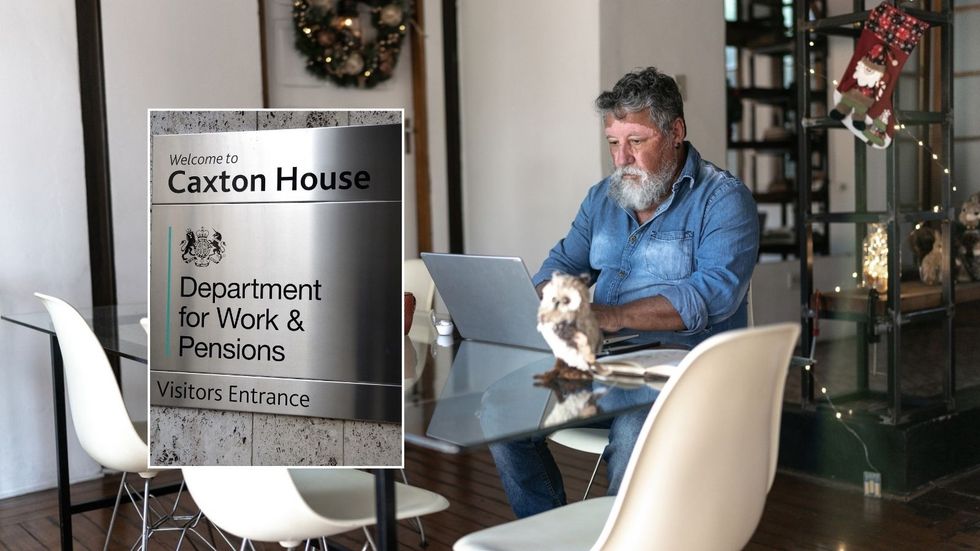 Benefit payments could be cut as part of a DWP overhaul | GETTY
Benefit payments could be cut as part of a DWP overhaul | GETTY"What are the proof points of this?" he asked, highlighting recent investment successes. "We had record investments at our investment summit last year - £63billion invested - these are global investors choosing the UK."
Upon hearing a disability rights activist's case, Justice Calver's High Court judgment repeatedly described the DWP consultation as "misleading," "rushed" and "unfair." The court found that the previous Government had misled consultees by claiming the measures were solely aimed at helping disabled people into work.
Internal DWP documents revealed during the judicial review showed that cost savings were a key motivation behind the changes, which the current Government appears to be aiming for.
The eight-week consultation period was also deemed too short by the court. The proposed reforms would affect more than 450,000 disabled people, with most facing potential losses of up to £416 monthly at current benefit rates.
Said changes would alter the Work Capability Assessment (WCA) system by reducing emphasis on mobility and movement difficulties when evaluating disability levels.
The Office for Budget Responsibility (OBR) estimates just 15,400 disabled people would find paid work through the reforms by 2029. The changes would alter the Work Capability Assessment system by reducing emphasis on mobility and movement difficulties when evaluating disability levels.
LATEST DEVELOPMENTS:
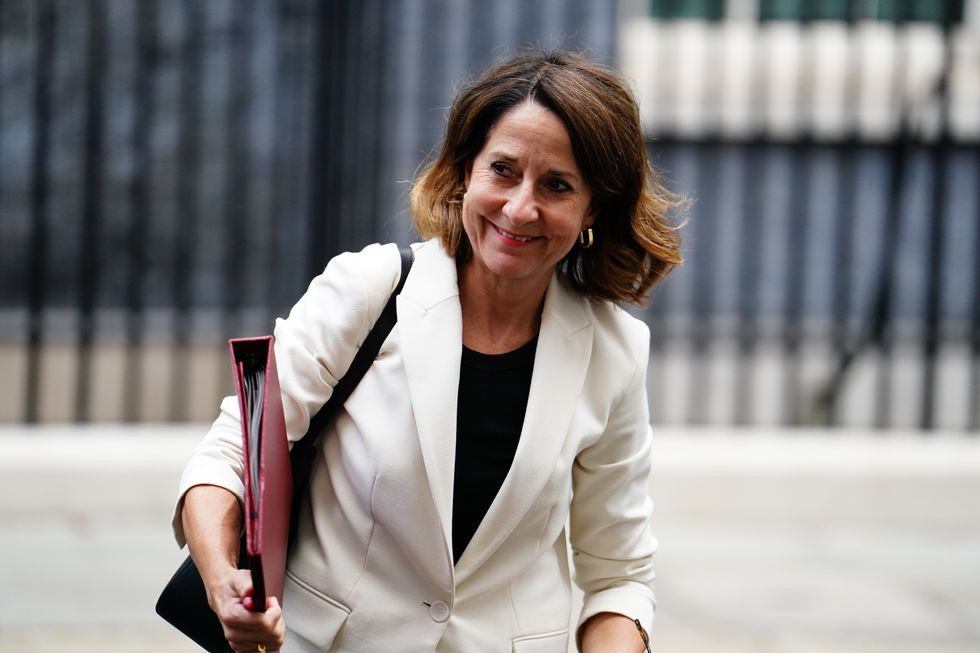 Liz Kendall has pledged a benefits crackdown | PA
Liz Kendall has pledged a benefits crackdown | PAInclusion London warned implementing these policies would lead to a regression of rights for disabled people and conflict with the UK's obligations under the UN Convention on the Rights of Disabled People.
Despite the High Court ruling, Labour has indicated it will proceed with the planned benefits reforms, though a new consultation process will be required. A Government spokesperson confirmed plans to re-consult on the WCA changes "addressing the shortcomings in the previous consultation."
Chancellor Rachel Reeves reinforced this position in her Autumn Budget, stating: "First, we inherited the last Government's plans to reform the Work Capability Assessment. We will deliver those savings as part of fundamental reforms to the health and disability benefits system."
The Government spokesperson emphasised: "The Government intends to deliver the full level of savings in the public finances forecasts."


